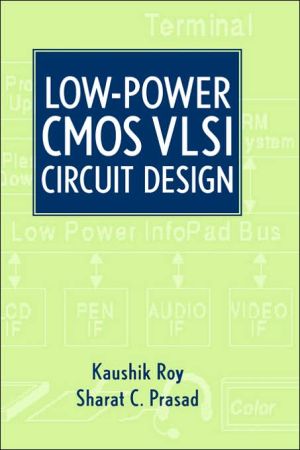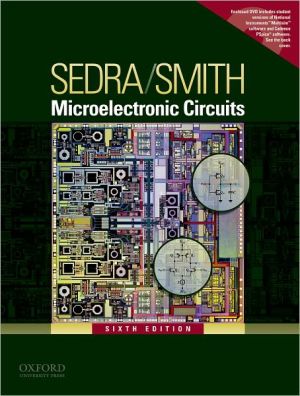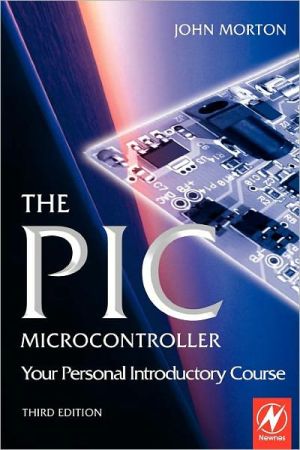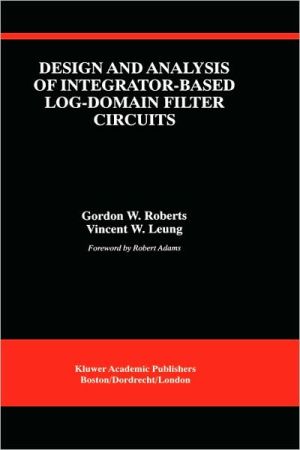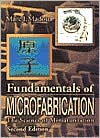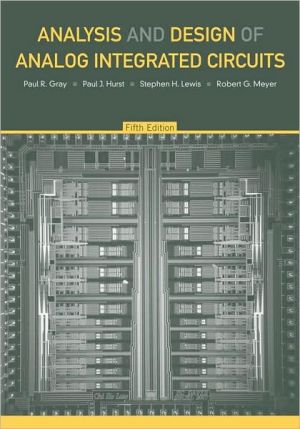Low-Power CMOS VLSI Circuit Design
A comprehensive look at the rapidly growing field of low-power VLSI design\ Low-power VLSI circuit design is a dynamic research area driven by the growing reliance on battery-powered portable computing and wireless communications products. In addition, it has become critical to the continued progress of high-performance and reliable microelectronic systems. This self-contained volume clearly introduces each topic, incorporates dozens of illustrations, and concludes chapters with summaries and...
Search in google:
A comprehensive look at the rapidly growing field of low-power VLSI design Low-power VLSI circuit design is a dynamic research area driven by the growing reliance on battery-powered portable computing and wireless communications products. In addition, it has become critical to the continued progress of high-performance and reliable microelectronic systems. This self-contained volume clearly introduces each topic, incorporates dozens of illustrations, and concludes chapters with summaries and references. VLSI circuit and CAD engineers as well as researchers in universities and industry will find ample information on tools and techniques for design and optimization of low-power electronic systems. Topics include: * Fundamentals of power dissipation in microelectronic devices * Estimation of power dissipation due to switching, short circuit, subthreshold leakage, and diode leakage currents * Design and test of low-voltage CMOS circuits * Power-conscious logic and high-level synthesis * Low-power static RAM architecture * Energy recovery techniques * Software power estimation and optimization Booknews Designing low-power VLSI circuits is a dynamic research area driven by the growing trend of battery-powered portable computing and wireless communication products, since miniaturization of digital CMOS (complementary metal-oxide-semiconductor) circuits results in heat removal and cooling problems. Following an introduction to the field, the authors discuss the physics of power dissipation in CMOS FET (field-effect transistor) devices, power estimation, synthesis for low power, design of low-voltage circuits, low-power static RAM architectures, and techniques and software for low-energy computing. Roy teaches electrical and computer engineering at Purdue U. Prasad is a system architecture engineer with Cisco Systems. Annotation c. Book News, Inc., Portland, OR (booknews.com)
Preface1Low-Power CMOS VLSI Design12Physics of Power Dissipation in CMOS FET Devices73Power Estimation534Synthesis for Low Power1435Design and Test of Low-Voltage CMOS Circuits2016Low-Power Static Ram Architectures2537Low-Energy Computing using Energy Recovery Techniques2728Software Design for Low Power321Index351
\ From the Publisher"This is a highly recommended book for all academic engineering libraries." (E-Streams, Vol. 4, No. 8, August 2001)\ \ \ \ \ \ BooknewsDesigning low-power VLSI circuits is a dynamic research area driven by the growing trend of battery-powered portable computing and wireless communication products, since miniaturization of digital CMOS (complementary metal-oxide-semiconductor) circuits results in heat removal and cooling problems. Following an introduction to the field, the authors discuss the physics of power dissipation in CMOS FET (field-effect transistor) devices, power estimation, synthesis for low power, design of low-voltage circuits, low-power static RAM architectures, and techniques and software for low-energy computing. Roy teaches electrical and computer engineering at Purdue U. Prasad is a system architecture engineer with Cisco Systems. Annotation c. Book News, Inc., Portland, OR (booknews.com)\ \
